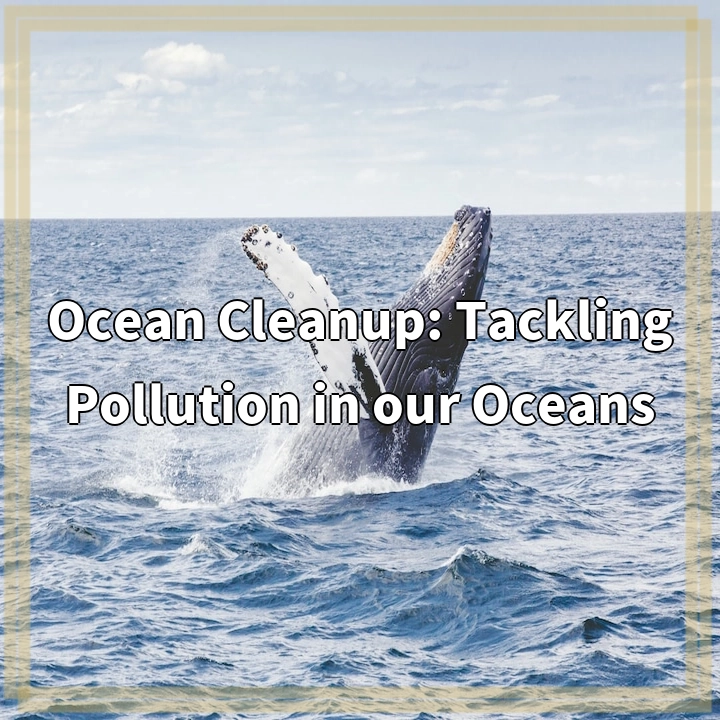
What is Ocean Cleanup?
Ocean Cleanup refers to a range of initiatives and projects aimed at addressing the growing issue of pollution in our oceans. These projects involve various strategies and technologies designed to remove plastic debris and other pollutants from the marine environment.
Real-World Problems Associated with Ocean Cleanup
While Ocean Cleanup projects provide hope for tackling ocean pollution, they also face several challenges and considerations:
1. Scale and Scope
The vastness of our oceans presents a monumental challenge for cleanup efforts. With an estimated 5 trillion pieces of plastic debris currently floating in the ocean, removing all of it is an enormous task that requires significant resources and infrastructure.
2. Efficiency and Effectiveness
Developing technologies that can efficiently and effectively collect and remove debris at sea is crucial. Solutions must consider factors such as ocean currents, weather conditions, and the ability to effectively target and capture debris without harming marine life.
3. Cost and Funding
Implementing large-scale ocean cleanup projects requires substantial financial investment. Funding can come from a variety of sources, including government grants, private donations, and corporate sponsorships. However, securing and sustaining these funds can be challenging, especially when competing with other environmental causes.
4. Environmental Impact
While the goal of Ocean Cleanup is to remove pollution from the ocean, the methods and technologies used may have unintended environmental consequences. Care must be taken to ensure that the cleanup efforts do not harm marine ecosystems or disrupt natural processes.
5. Education and Awareness
Addressing the root causes of ocean pollution requires not only cleanup efforts but also increasing public awareness and education. By promoting sustainable practices and encouraging responsible plastic use, we can prevent further pollution and reduce the need for future cleanup efforts.

Solutions for Ocean Cleanup
1. Technological Innovations
Developing and implementing advanced technologies for ocean cleanup plays a crucial role in addressing pollution. Innovations such as autonomous robotic systems, floating barriers, and drones equipped with pollutant detection sensors can improve the efficiency and effectiveness of cleanup efforts.
2. Collaborative Partnerships
Collaborating with governments, nonprofit organizations, and private entities is essential to pool resources, share knowledge, and coordinate efforts. Establishing partnerships allows for greater funding opportunities, access to expertise, and the ability to scale up cleanup operations.
3. Policy and Regulation
Implementing and enforcing strict regulations that reduce plastic waste and promote sustainable practices are essential to prevent further pollution. Governments and international bodies can enact legislation to limit single-use plastics, encourage recycling, and incentivize industries to adopt eco-friendly alternatives.
4. Education and Awareness
Increasing public awareness about the impact of ocean pollution and the importance of responsible waste management is a key solution. Educational campaigns, school programs, and initiatives that promote sustainable practices can empower individuals to make environmentally conscious choices and reduce their contribution to ocean pollution.
5. Circular Economy Approach
A shift towards a circular economy model, where waste is minimized, resources are reused, and products are designed for durability and recyclability, can significantly reduce the amount of waste entering our oceans. Encouraging businesses and consumers to embrace this approach can prevent pollution at its source.















